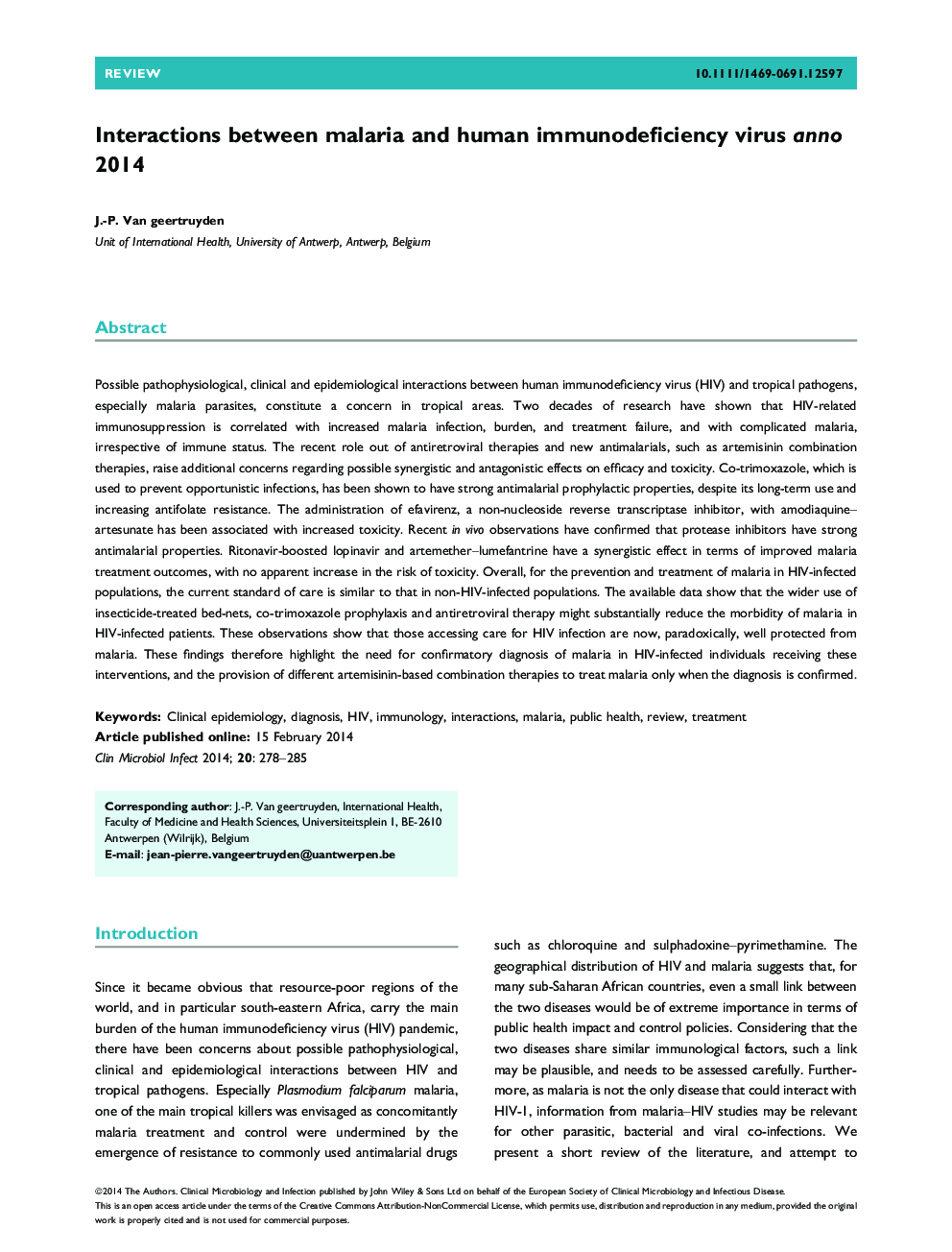| کد مقاله | کد نشریه | سال انتشار | مقاله انگلیسی | نسخه تمام متن |
|---|---|---|---|---|
| 6130398 | 1222173 | 2014 | 8 صفحه PDF | دانلود رایگان |
عنوان انگلیسی مقاله ISI
Interactions between malaria and human immunodeficiency virus anno 2014
ترجمه فارسی عنوان
تعاملات بین مالاریا و ویروس نقص ایمنی بدن سالانه 2014
دانلود مقاله + سفارش ترجمه
دانلود مقاله ISI انگلیسی
رایگان برای ایرانیان
کلمات کلیدی
اپیدمیولوژی بالینی، تشخیص، اچ آی وی، ایمونولوژی، فعل و انفعالات، مالاریا، سلامت عمومی، مرور، رفتار،
موضوعات مرتبط
علوم زیستی و بیوفناوری
ایمنی شناسی و میکروب شناسی
میکروب شناسی
چکیده انگلیسی
Possible pathophysiological, clinical and epidemiological interactions between human immunodeficiency virus (HIV) and tropical pathogens, especially malaria parasites, constitute a concern in tropical areas. Two decades of research have shown that HIV-related immunosuppression is correlated with increased malaria infection, burden, and treatment failure, and with complicated malaria, irrespective of immune status. The recent role out of antiretroviral therapies and new antimalarials, such as artemisinin combination therapies, raise additional concerns regarding possible synergistic and antagonistic effects on efficacy and toxicity. Co-trimoxazole, which is used to prevent opportunistic infections, has been shown to have strong antimalarial prophylactic properties, despite its long-term use and increasing antifolate resistance. The administration of efavirenz, a non-nucleoside reverse transcriptase inhibitor, with amodiaquine-artesunate has been associated with increased toxicity. Recent in vivo observations have confirmed that protease inhibitors have strong antimalarial properties. Ritonavir-boosted lopinavir and artemether-lumefantrine have a synergistic effect in terms of improved malaria treatment outcomes, with no apparent increase in the risk of toxicity. Overall, for the prevention and treatment of malaria in HIV-infected populations, the current standard of care is similar to that in non-HIV-infected populations. The available data show that the wider use of insecticide-treated bed-nets, co-trimoxazole prophylaxis and antiretroviral therapy might substantially reduce the morbidity of malaria in HIV-infected patients. These observations show that those accessing care for HIV infection are now, paradoxically, well protected from malaria. These findings therefore highlight the need for confirmatory diagnosis of malaria in HIV-infected individuals receiving these interventions, and the provision of different artemisinin-based combination therapies to treat malaria only when the diagnosis is confirmed.
ناشر
Database: Elsevier - ScienceDirect (ساینس دایرکت)
Journal: Clinical Microbiology and Infection - Volume 20, Issue 4, April 2014, Pages 278-285
Journal: Clinical Microbiology and Infection - Volume 20, Issue 4, April 2014, Pages 278-285
نویسندگان
J.-P. Van geertruyden,
